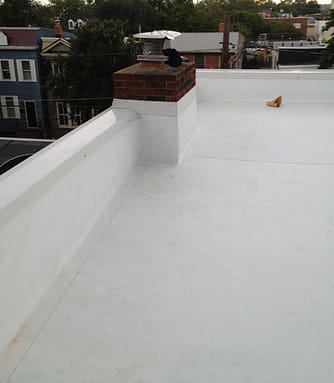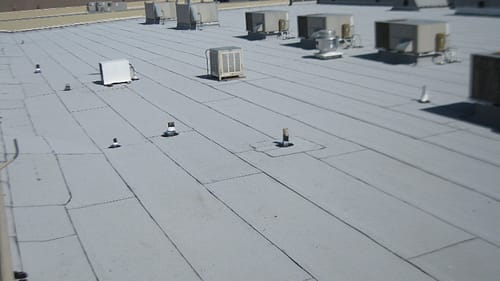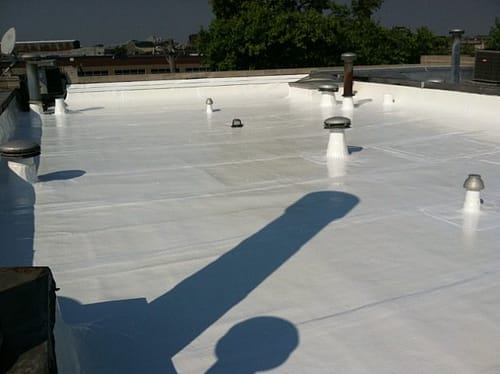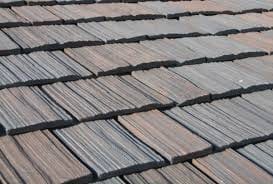Industrial roofs can be quite different from the traditional roofs of a house. This is because they need to cover a much larger area, and they do not have different shapes and styles of roofing like it is found in residential buildings. Most of the time industrial roofs are made for sheds, thus it has a large square structure with proper facilities for water to runoff. So since it has a large structure it requires constant maintenance.
What is industrial roof coatings? Why do you need industrial roof coating?
Roof coating is a type of paint layer which is applied after cleaning or demining the roof. By applying a roof coating you extend the life of the roof. This way your roof enjoys years of protection.
Due to bad weather, tiles and slates slowly become porous. This can lead to small cracks, so that moisture can penetrate the roof tiles more easily.
If your industrial roof is more sensitive to mosses and algae, then using a protective roof coating is essential. Your dirty or damaged roof will look like new again. So you don’t have to have your industrial roofing company replace the roof covering!
Advantages of industrial roof coating:
There are more than enough reasons to think why applying a roof coating is a good idea.
- A roof coating makes the roof resistant to water and dirt.
- This solution is much cheaper than installing a new roof covering: coating tiles can be as much as 50-70% cheaper!
- A roof coating can prevent the growth of moss and algae
- In addition, the coating prevents UV rays, so that the roof will hardly or never discolor
- A roof coating makes the roof more durable: it can then easily last for 15 years.
So from the above benefits, you can learn that the industrial roof coating protects the roof mainly from leaking and other external environmental conditions.
What are the best roof coatings? And How much does a roof coating cost?
- Asphalt emulsions
- Solvent-based silicone coatings
- Acrylic roof coatings
- Solvent-based asphalt coatings
Asphalt emulsions:
Asphalt emulsions coatings consist of emulsified asphalt. They use clay as the emulsifying component. These asphalt emulsions coating consists of both organic and inorganic fibers and fillers in them which provide extra strength to the roof coating. They are available in two colors namely: brown and black. They can also be used as a reflective coating when you add aluminum or titanium dioxide pigments to them. And Finally the cost, the asphalt emulsion ranges from $0.14 – $0.25 per square foot.
Solvent-based silicone coatings:
The silicone coatings are the best roof coating. They are produced by adding catalysts and solvents to the silicon base. This silicone coating is biodegradable since they are a natural material. They are also available in many colors. And this type of roof coating costs nearly $1 to $1.50 per square foot.
Acrylic roof coatings:
Various types of acrylic polymers are present in the Acrylic roof coatings. They mainly help in extending the coating lifespan and also improves durability. Though it is available in many colors they are mostly used as white reflective coatings. This acrylic roof coating costs $0.15 – $0.75 per square foot.
Solvent-based asphalt coatings:
They are also called cutback coatings because the solvent-based asphalt coatings are solid at room temperature and solvent present in them liquefies the coating. So it is easy to apply the coating more easily. Solvent-based asphalt coatings are available in an aluminum-finish or asphalt black reflective coating.
Finally, the roof coating is mainly done for flat roofs. Other types of roofs most probably do not require roof coating. Generally, the flat roofs will cost $1.50-$3.50 per square foot.
What is the elastomeric roof coating?
The elastomeric roof coating is a type of elastic roof coating which is applied to a variety of roof types in order to protect the roofs and seal the underlying roofing material. It mainly helps to prevent leaks occurring on roofs. Some elastomeric roof coatings are designed to cool the building.




